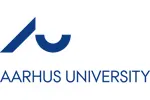

| The award | How you will study | Study duration | Course start | Domestic course fees | International course fees |
|---|---|---|---|---|---|
| MSc | Full-time | 4 semester | September, February | 0 | EUR 0 per year |
Measurements flow in every day from satellites in space and from observatories all over the world. Students on the MSc in Astronomy programme are actively involved in research and in the discussion of new discoveries and theories. They study new planets orbiting other stars, examine the structure and development of the stars through seismological studies, and explore the earliest stages of the development of the universe, working with computer modelling or measurements from state-of-the-art telescopes and satellites.
RESEARCH AND COLLABORATION
Teaching on the astronomy programme is greatly influenced by research, both in the courses and the thesis work, as the lecturers are active researchers. In this context, students benefit from the down-to-earth, informal relationship between the academic staff and students. Each student is associated with a group of researchers for their thesis work in year two, and there is wide scope for specialisation, both within the Department of Physics and Astronomy and (thanks to the department's close collaborations with other centres) with researchers from the European Southern Observatory, the European Space Agency, and NASA.
SPECIALISATION
The MSc in Astronomy programme is open to students with a BSc degree in physics or another BSc degree in science with substantial physics and mathematics content. The programme is challenging and research-oriented, and reflects the interests of the private sector, research institutions, and the public sector. It is also flexible, and can accommodate the interests and profile of the individual student.
Students can specialise in (for example) helio-and asteroseismology, extra solar planet research, galactic structure, compact objects, or cosmology. The programme qualifies students for a career in research: students may apply for admission to the university's PhD programme either during the first year of the MSc programme or on completion of thier thesis.
STUDENT LIFE
The Department of Physics and Astronomy aims to create a good student environment both in terms of working methods and in the social environment and facilities. When you write your master's thesis in one of the department's research groups, you will be given your own desk in an office that you will share with other students.
The department also has many social and academic associations with their own festive traditions. They organise events like the "hat party," celebrating the most recent graduates. There is also the Physics Friday bar, where students get together at the end of the week to enjoy a drink and a catch-up.
CAREERS
As a graduate of the MSc programme in astronomy, a wide range of career opportunities will be open to you. Our graduates work in a variety of positions in the private sector, e.g. as data scientists, as researcher, or as software developer. Astronomy graduates also work in public research institutions such as universities, the European Southern Observatory, or the European Space Agency.
All EU/EEA/Swiss citizens are exempt from payment of tuition fees.
In general, admission to a Master’s degree programme requires successful completion of a relevant and recognised university degree equivalent to a Danish Bachelor’s degree in level and length (180 ECTS). All applications must also fulfil the English language requirements.
Find more information about the admission requirements, application procedure and deadlines at Aarhus University.
In addition, you must meet the specific requirements for the Astronomy programme, which can be found on the Astronomy study programme page.
Below are some suggested courses at other providers that you may also be interested in:
If you do not meet the entry requirements for this course then consider one of these postgraduate preparation courses from another institution:
Graduate Diploma of Engineering (Civil: Structural)
Engineering Institute of Technology
Find out moreThere are 56 other courses listed from Aarhus University. A selection of these are displayed below:
Find out more about studying in Denmark